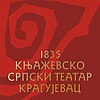
Danilo Stojković

Bata Stojković | |
|---|---|
Бата Стојковић | |
 Danilo Stojković on a 2007 Serbian stamp | |
| Born | Danilo Stojković 11 August 1934 |
| Died | 16 March 2002 (aged 67) Belgrade, FR Yugoslavia |
| Nationality | Serbian |
| Occupation | Actor |
| Years active | 1964–2002 |
| Height | 1.73 m (5 ft 8 in) |
Danilo Stojković (Serbian Cyrillic: Данило Стојковић; 11 August 1934 – 16 March 2002), commonly nicknamed Bata (Бата), was a Serbian theatre, television and film actor.

Stojković's numerous comedic portrayals of state officials and working-class characters made him popular with Serbian and ex-Yugoslav audiences. Most of his roles came in collaborations with either director Slobodan Šijan or scriptwriter Dušan Kovačević, or both.

Career
Early career
Stojković was born in Belgrade in 1934.[1] By the mid-1960s, he became a well-known theatre actor. He started his film career with the 1964 feature Izdajnik (lit. "The Traitor").[1]

A string of TV and minor film roles ensued, with the most important ones coming in guise of being a father figure to the main protagonist – Čuvar plaže u zimskom periodu (Beach Guard in Winter, 1976), Pas koji je voleo vozove (The Dog Who Loved Trains, 1977) being the most recognizable ones – as well as the part in critically well-received Majstor i Margarita (Il Maestro e Margherita), 1972.[2][3]

He also fulfilled the fatherly role in an immensely popular TV show Grlom u jagode. The show originally aired in 1975 and kept finding its audience through numerous reruns in the 1980s and the 1990s. He also played the minor antagonist in Goran Marković's urban classic Nacionalna klasa do 750 cm3 (National Class Category Up to 750 ccm), 1979.[3][4]

Breakthrough
Stojković worked with the director Slobodan Šijan, who was in turn most successful when working with Dušan Kovačević scripts. Kovačević, a talented playwright with a special gift for biting satire, had a knack for writing characters which Stojković could perfectly translate to screen. The combination of those three creative talents yielded some of Yugoslavia's most memorable cinematic efforts to date.

Šijan, who previously worked with Stojković on several TV productions, made his big screen debut with Ko to tamo peva (Who's Singing Over There?, 1980), a farcical comedy set at the beginning of World War II in then Yugoslavia. In a strong cast ensemble, Stojković distinguished himself with role of a Germanophile bus passenger on the way to Beograd in the eve of 5 April 1941 – the day Belgrade was bombed by the Axis Powers marking Yugoslavia's entry into the war.[5][6]

Ko to tamo peva was released to great critical and commercial success, earning the special jury award at the Montreal World Film Festival in Canada.[6] The success of Ko to tamo peva opened new doors for Stojković, who then established his film star status with a number of critically acclaimed roles. He appeared in Goran Paskaljević's dark comedy about rehab from alcoholism, Poseban tretman (Special Treatment), 1980.[7]

He reunited with Šijan for another high-water mark of Serbian film, the black comedy Maratonci trče počasni krug (Marathon Family). The film, a humorous piece about a family whose undertaking business is being threatened by the local mobster was another smash success for Šijan and Stojković, and achieved cult status. He also voiced Stromboli in the Serbian-language version of Pinocchio.

Marxists, spies and revolutionaries
After a couple minor roles, from which his turn as the school principal in comedy Idemo dalje (lit. Moving On, 1982) deserved some mention, Stojković delivered a trio of performances which would ultimately cement his place in the Yugoslavian acting hall of fame. Oddly enough, all three of those roles would involve him portraying a character closely related to the communist ideals – or better said, satirizing a stereotype of "party men" or "marxist revolutionaries".

First was his portrait of a homeless wannabe revolutionary Babi Pupuška, in Šijan's Kako sam sistematski uništen od idiota (How I Got Systematically Destroyed by an Idiot, (1983), a story about a man who embarks on a soul-searching journey after hearing the, for him at least, shattering news of Che Guevara's demise. Stojković portrayed another dysfunctional Marxist father figure in Goran Paskaljević's elegiac Varljivo leto '68 (The Elusive Summer of '68, 1984).[3][8]

Again uniting his talents with those of Dušan Kovačević, Stojković delivered his ultimate film performance – that of the staunch Stalinist and a full-time paranoid in Balkanski špijun (Balkan Spy, 1984), which was jointly directed by Božidar Nikolić and Kovačević himself. With Kovačević at his sharpest, Stojković made the role of ex-political prisoner Ilija Čvorović completely his own. Critics often single out this role as Stojković's most notable.[1]

Late years and death
His role in Balkanski špijun was one of the last major theatrical roles for Stojković. After his major successes of the early 1980s, Stojković concentrated mainly on television and theatre, with an odd supporting role here and there. He was effective in both Vreme čuda (lit. Time of the Miracles, 1989) and Sabirni centar (The Collective Center), and had a memorable cameo in Balkan Express 2 (1989). His most famous theatrical role was that of Luka Laban, in another Kovačević play, Profesionalac (lit. "The Professional"). He played the role until a few days before his death. In an interview in 2007 his wife told that she drove him from the hospital to his last plays and returned him to the hospital bed after the play.

In the 1990s, Stojković cameoed in Crni bombarder (The Black Bomber, 1992), and had minor roles in movies such as Emir Kusturica's Underground (1995) and Darko Bajić's Balkanska pravila (Balkan Rules, 1997).

Ironically enough, one of his final theatrical roles was one of an orthodox priest – a character who Babi Pupuška and Ilija Čvorović would probably despise – in Lazar Ristovski's 1999 effort Belo odelo ("The White Suit"). After that, he appeared in an omnibus feature called Proputovanje (Traveling, 1999) and starred in a TV adaptation of the August Strindberg's play The Father for Radio-televizija Srbije – RTS (Otac, 2001).

Stojković died in Belgrade on 16 March 2002, after a bout with lung cancer.[9]

Awards and legacy
Throughout his lifetime, Stojković was the recipient of the Serbian Lifetime Achievement Award for both theatrical (Dobričin prsten, 1990) and cinematic (Pavle Vujisić, 1998) efforts. He remains as popular in death as he was in life, as his characters have entertained numerous generations of Serbo-Croatian speakers. His numerous comedic portrayals of state officials and working-class characters made him popular with Yugoslav audiences.[9]

Selected filmography
Selected television
| Year | Title | Role | Notes |
|---|---|---|---|
| 1966 | Večeras improvizujemo Rajkina | TV movie | |
| Mladi Duhovi | General Rozdenstvenski | TV movie | |
| Rodjendan | Otac | TV movie | |
| 1967 | Probisvet | TV series; 1 episode | |
| Krug dvojkom | TV series; 2 episodes | ||
| Ovo zene posle rata | TV movie | ||
| Stara koka, dobra juha | TV movie | ||
| 1968 | Gorski car | TV series; 3 episodes | |
| Bekstvo | Tihi | TV movie | |
| Jednog dana, jednom čoveku | TV movie | ||
| 1969 | Samci 2 | Vita Sukletic | TV series; 1 episode |
| Rađanje radnog naroda | Bangela Kukuljevic | TV series; 2 episodes | |
| 1971 | Ceo život za godinu dana | Steva Bajic | TV series; 3 episodes |
| 1972 | Cela pevacica | Vatrogasni kapetan | TV movie |
| 1973 | Beograd ili tramvaj a na prednja vrata | TV movie | |
| 1976 | Grlom u jagode | TV series; 10 episodes | |
| 1977 | Nikola Tesla | George Westinghouse | TV series; 3 episodes |
| 1979 | Djetinstvo mladosti | TV series; 3 episodes | |
| 1980 | Pripovedanja Radoja Domanovica | TV series; 10 episodes | |
| 1982 | Sijamci | Djura Mitrovic | TV mini-series; 5 episodes |
| 1983 | Ucitelj | Bozur | TV mini-series; 7 episodes |
| 1985 | Srebrena lisica | Cavce | TV movie |
| 1986 | Svecana obaveza | Stevan | TV movie |
| 1996-1997 | Gore dole | Avram Jaksic | TV series; 32 episodes |
Selected film
| Year | Title | Role | Notes |
|---|---|---|---|
| 1964 | Čovek iz hrastove šume | Stevan | |
| Izdajnik | |||
| 1965 | Čovek nije tica | ||
| 1966 | Roj | Nikola | |
| 1968 | U raskoru | Postar | |
| 1970 | Burduš | Roditelj | |
| 1971 | Young and Healthy as a Rose | ||
| 1972 | Majstor i Margarita | Bobov | |
| 1976 | Čuvar plaže u zimskom periodu | Milovan Pasanović - Draganov otac | |
| 1977 | Pas koji je voleo vozove | Otac | |
| 1979 | Nacionalna klasa do 750 cm3 | Cabor | |
| 1980 | Special Treatment | Steva | |
| Who's Singin' Over There? | Brka | ||
| 1982 | Maratonci trče počasni krug | Laki Topalovic | |
| 1983 | Kako sam sistematski uništen od idiota | Babi Papuska | |
| 1984 | Varljivo leto '68 | Veselin Cvetkovic | |
| Balkanski špijun | Ilija Cvorovic | ||
| 1989 | Sabirni centar | Simeun | |
| Balkan Express 2 | Mida | ||
| Time of Miracles | Jovan | ||
| 1992 | Crni bombarder | Presednik | |
| 1995 | Underground | Deda | |
| 1997 | Balkan Rules | Sajdzija | |
| 1999 | Belo odelo | Svestenik |
References
- ^ a b c Stanković, J. (11 August 2020). "Danilo Bata Stojković – ljubav prema glumi veća od života". danas.rs.
- ^ Kinematografija u SR Srbiji: Biblioteka dokumentacije. Institut za film (Belgrade, Serbia). 1972. p. 34.
- ^ a b c Jelača, Dijana; Kolanović, Maša; Lugarić, Danijela, eds. (2017). The Cultural Life of Capitalism in Yugoslavia: (Post)Socialism and Its Other. Springer. p. 170. ISBN 9783319474823.
- ^ Slater, Thomas J. (1992). Handbook of Soviet and East European Films and Filmmakers. Bloomsbury Academic. p. 224. ISBN 9780313262395.
- ^ Magill, Frank Northen (1985). Magill's Survey of Cinema, Foreign Language Films, Volume 7. Salem Press. p. 3389. ISBN 9780893562434.
- ^ a b Roberts, Jerry; Gaydos, Steven, eds. (1995). Movie Talk from the Front Lines: Filmmakers Discuss Their Works with the Los Angeles Film Critics Association. McFarland & Company. pp. 287–288. ISBN 9780786400058.
- ^ Time Out Film Guide, Volume 15. Penguin Books. 2007. p. 1084.
- ^ Luthar, Breda; Pušnik, Maruša, eds. (2010). Remembering Utopia: The Culture of Everyday Life in Socialist Yugoslavia. New Academia Publishing, LLC. p. 209. ISBN 9780984406234.
- ^ a b "Obituaries". The Washington Post. 18 March 2002.
External links
- 1934 births
- 2002 deaths
- Male actors from Belgrade
- 20th-century Serbian male actors
- Golden Arena winners
- 21st-century Serbian male actors
- Serbian male film actors
- Serbian male stage actors
- Serbian male television actors
- Serbian male voice actors
- Laureates of the Ring of Dobrica
- Deaths from lung cancer in Serbia
- Burials at Belgrade New Cemetery
See what we do next...
OR
By submitting your email or phone number, you're giving mschf permission to send you email and/or recurring marketing texts. Data rates may apply. Text stop to cancel, help for help.
Success: You're subscribed now !

